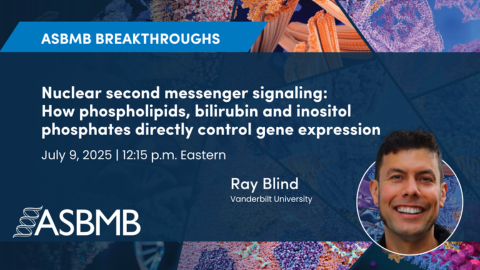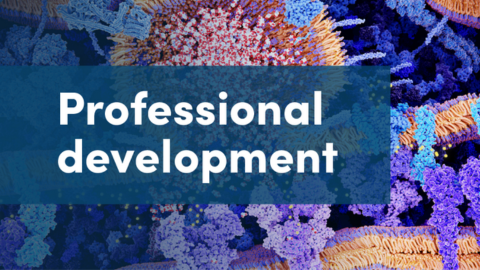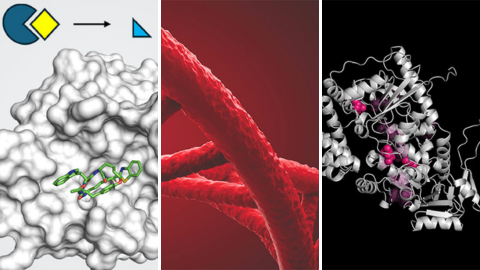The power of productivity
We all know those friends or colleagues who seem to have a mysterious ability to get work done — the classmate who graduates with his or her Ph.D. in a year ahead of everyone else or the co-worker who gets every project done ahead of schedule. Want to know the secret? It’s likely that they have mastered the art of productivity. Here are tips, tricks and habits that you can use to boost your own productivity.
Building blocks of productivity
When you think of your most productive days, what characteristics did they have in common? You were probably feeling very motivated, focused and set on accomplishing a specific task. These are the building blocks of productivity: motivation, focus and goal setting. Let’s take a closer look at each of these building blocks and ways to improve your ability to use them in your everyday workflow.
Motivation
It can be difficult to know how to motivate yourself. We all have some tasks we dislike and some we are excited to do. Many people find that their motivation waxes and wanes over the course of a day or a workweek. Believe it or not, you can influence your motivation and train yourself to stay more motivated more often.
First, people are motivated to do things they feel excited about over things they dread. Take charge of your workload and try to get your own work accomplished before helping out colleagues. Yes, it’s good to be helpful in the workplace, but not at your own expense. You can do this by starting out each day with predetermined tasks rather than immediately checking your email and responding to the needs of others. You also can feel empowered to turn down requests for additional work that you honestly cannot accommodate or asking a co-worker to wait until you’ve finished your own tasks before providing them help with theirs. Are there any tasks you can delegate to a co-worker to free up your time to work on the bigger, more challenging project? Delegating tasks (when used appropriately) will help build rapport with colleagues and free you up to work on the things you’re most motivated to accomplish.
Next, we all know that tight deadlines sometimes can create stress, but did you know that self-imposed deadlines can create just the right amount of stress to keep you motivated to finish a task? If you have a project or series of tasks for which there is no deadline, make one for yourself. If you’re having a hard time starting a task that’s not due for a long time, setting a deadline for checkpoints along the way also can help you stay motivated to work on it before it comes down to the wire.
This next tip seems counterintuitive, but I’ve found it to be true: Don’t be afraid to leave tasks partially incomplete or questions unanswered. During graduate school, I was still competing as an endurance athlete, so there were many days I would leave the lab early to go train. During those long hours of training, I would ruminate over my thesis work in my head, thinking critically about data and experiments and hypotheses, and on more than one occasion, I had a huge breakthrough in my work. Leaving tasks unfinished forces your mind to dwell on them, and you’ll either come up with great insights after getting some time and distance from your work, or you’ll be motivated to pick up your unfinished task immediately when you do get back to work.
Finally, create some time every day for reflection about your day. Block out 30 minutes to sit quietly at the end of your day and think critically about how your day went. What were you excited about? What were you not excited about? Why did you feel that way? What did you do well, and what could you have done better? If you ask yourself these questions and give yourself honest answers, you’ll feel motivated to take charge of your next day and start fresh by tackling the projects you’re most excited about (or excited to do better).
Focus
Focus is one of the hardest things for most people to master, especially in a society filled with interruptions and distractions. Challenge yourself to work distraction-free for blocks of time. Start small by saying, “I’m going to spend 30 minutes reading this research paper.” The first 10 minutes, you may be tempted to check email on your phone or reply to a new Facebook status update, but stay tough and don’t give in. You’ll be surprised at how much more focused you begin to feel and how much less tempted you become to give in to distraction. Experts say that ideally you should shoot for 90-minute intervals of work before allowing yourself a short break.
When you feel your focus slipping, take short breaks to get away from your work and change your location. Simply getting up to get a snack can reinvigorate your mental energy, and spending five or 10 minutes doing so can save time in the long run compared with powering through slumps in focus and trying to get work done as you become increasingly distracted.

If focused work periods and short breaks aren’t working, try to eliminate distractions. Can you use noise-canceling headphones to signal to co-workers that you should not be interrupted? Can you turn your phone on do-not-disturb mode, turn it off or lock it in a desk drawer? Some people use a special browser that prevents them from visiting social media or news sites. Set rules for yourself about how often you check email or social media, and block out time to do so throughout your day rather than continually checking them.
One way to make sure you start each day with focus is to lay out a to-do list with your tasks for each day in the week. Managing tasks with a computer program, such as Evernote or Microsoft Office, can help you maintain a little flexibility, since you can move and rearrange tasks as the week progresses while still tracking your progress. This improved my own productivity, especially in the lab. I learned from a postdoc how to chart out my week’s experiments, anticipating when I would need certain pieces ready to move on to the next step, and I could manage my workflow so I was always busy but not overwhelmed on any given day. It also helped me remember which tasks I should be starting next so I could stay focused and on schedule.
It might seem strange, but three of the most important things you can do for focus don’t actually involve working. Getting enough sleep each night and getting regular exercise are crucial for your mind to stay sharp. Also, limiting the number of hours you work will boost focus — you’ll make the most of the hours you spend at work rather than spreading out tasks or letting your mind wander.
Goal setting
Learning how to set goals is an art. Some goals might be very broad and take months or years to complete, and some goals might be very narrow, more like tasks on a to-do list. Both short- and long-term goals are invaluable in maximizing your productivity. To set really awesome goals, you have to keep them SMART. SMART goals are specific, measurable, achievable, realistic and time-bound. If a goal doesn’t have these five elements, it’s going to be much harder to complete. If you have a larger, more long-term goal, consider breaking it up into several smaller goals and articulate the SMART elements for both the big-picture and small, stepping-stone goals. You want to be setting goals on a daily basis, which also will help improve your motivation and focus.
Each day, track how much time you spend doing a given task. This will help hold you accountable for your time (which can also help keep you focused) and help you set better goals in the future. If you know how long a certain task takes to complete, you’ll be able to be more accurate in articulating the realistic and time-bound elements of your SMART goals.
Enjoy reading ASBMB Today?
Become a member to receive the print edition four times a year and the digital edition monthly.
Learn moreFeatured jobs
from the ASBMB career center
Get the latest from ASBMB Today
Enter your email address, and we’ll send you a weekly email with recent articles, interviews and more.
Latest in Careers
Careers highlights or most popular articles

Upcoming opportunities
Friendly reminders to register for the upcoming ASBMB Breakthroughs webinar on nuclear second messenger signaling and ASBMB's in-person symposium on proteomics in Cambridge, Mass.

2025 PROLAB awardees announced
Seven early-career scientists receive grants to advance their research by working in North American labs.

Upcoming opportunities
Register for ASBMB's upcoming free professional development webinars on women in science and commercializing biomedical research.

Teach, learn & transform biochemistry education
Meet the co-chairs of the 2025 ASBMB meeting on reimagining undergraduate education in the molecular life sciences to be held July 24–27, 2025 in St. Paul, Minnesota.

Upcoming opportunities
Submit your abstract for ASBMB's upcoming meetings on nucleophilic proteases, gene expression and O-GlcNAc.

Upcoming opportunities
Friendly reminder: Submit your abstracts for upcoming ASBMB meetings! Just added: virtual events on AI and STEMM graduate education.

